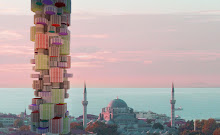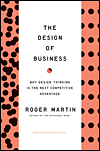My most dreaded question. The attention suddenly turns to me, and while I may smile at this expressed interest in me, on the inside I'm squirming - hastily trying to determine the easiest way to answer this question. I am, to many people, somewhat of a cultural oddity. With my indistinct facial features and collection of accents, I am frequently the subject of disconcerting scrutiny and analysis or blank looks of confusion. To those unlike me, I am a categorization nightmare, not easily pigeon-holed within the narrow constructs of cultural identity.

In today's society however, I am not altogether uncommon. I am, like many others I know, the physical flesh and blood embodiment of cultural globalization. We are the children born to parents who actively participated in the rise of globalization and the global economy. My mother is Chinese and my father is Pakistani. While my passport says that I am Canadian, I have spent the majority of my life bouncing between cities in Asia, North America and Europe. The richness and colorful diversity of all these cities, their residents and visitors have been critical in constructing the multiple layers of my cultural identity. The interactions I have had with different people over the years are all integral to how I define myself today. As adults, we become cultural chameleons, with a cultural identity that is fluid and individually determined. For example, my interpretations and perceptions of home are much more malleable and encompassing than for most.
My cultural identity can also subconsciously shift and alter depending on where I am and with whom I am conversing. Sometimes I am very conscious of this transition, hoping to put a new acquaintance at ease by connecting to what is familiar to them. At a recent conference, I commiserated with a Korean-American man, the educational pressures of growing up with strict Asian parents, having fully experienced those pressures in my own life. A few minutes later, I chatted with a Kuwaiti woman about the various cities in the Gulf and growing distortion in the perceptions of Muslims in the US. This was equally personal to me as my father is Muslim. Shortly thereafter, I had a discussion with a former professor between the differences in the quality of life in Toronto and New York City, as he has resided in Ontario for the past fifteen years. Later that day, I logged onto my laptop at work - the wallpaper is set to a beautiful picture of two sun-kissed rustic Italian villas on the edge of Lago di Como - as I had lived in the hills around Lake Como and that image provides me with a sense of familiarity and calm.
Generally, people are defined by the culture that surrounded them as a child. For many, it is based on their parents' backgrounds and/or where they grew up. Often these are both the same. For the large majority, the development from childhood through adulthood occurs primarily in one country. It is a rather linear and consistent process. Global Nomads however, lack this consistency. We moved from country to country at a time when our identity and perceptions of home were in the preliminary stages of formation. As children, we embraced and absorbed each culture instinctively, like a thirsty sponge, receptive to the unknown and foreign. Without prejudice and with child-like curiosity, a desire to engage the "other" naturally develops. Growing up in a constant state of transition amidst different cultures, we experience globalization
 in a very tangible way, finding comfort in a cross-cultural world. Global Nomads prefer to blur the boundaries, erase the differences and thrive in the in betweens. We live in the global and the local simultaneously - experiencing life from both perspectives.
in a very tangible way, finding comfort in a cross-cultural world. Global Nomads prefer to blur the boundaries, erase the differences and thrive in the in betweens. We live in the global and the local simultaneously - experiencing life from both perspectives.Current politics and society seemed to have succumbed to a very limited and divisional method of defining culture and identity, serving only to escalate situations and isolate people. Instead of looking for connections, as most Global Nomads do instinctively - too many people are blindly clinging onto what they assume separates them from each other. The innate ability of Global Nomads to connect with others, to negotiate, to understand and empathize on a far greater cultural scale, is seemingly lacking in today's world. It is a resource that I believe should be utilized more. We now live in a world that has to be about building connections, whether they be political, commercial, social or cultural. The more cultures are netted together, the more difficult it will be set them against each other.





























No comments:
Post a Comment